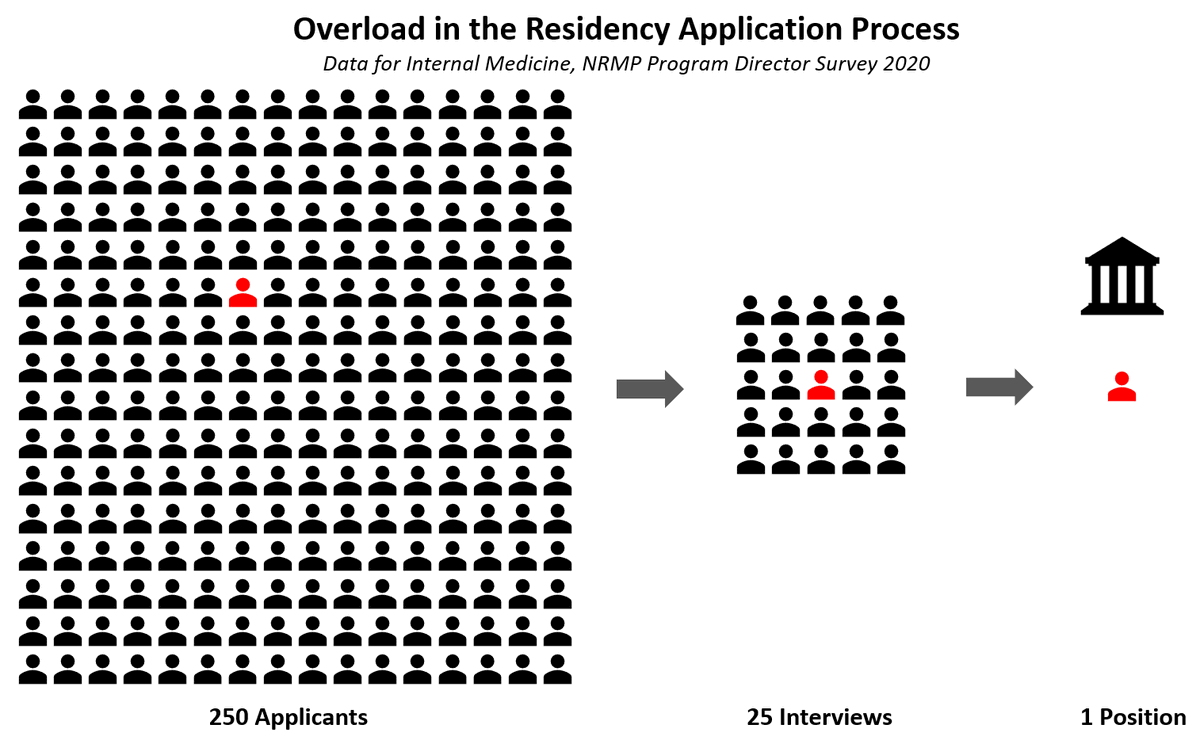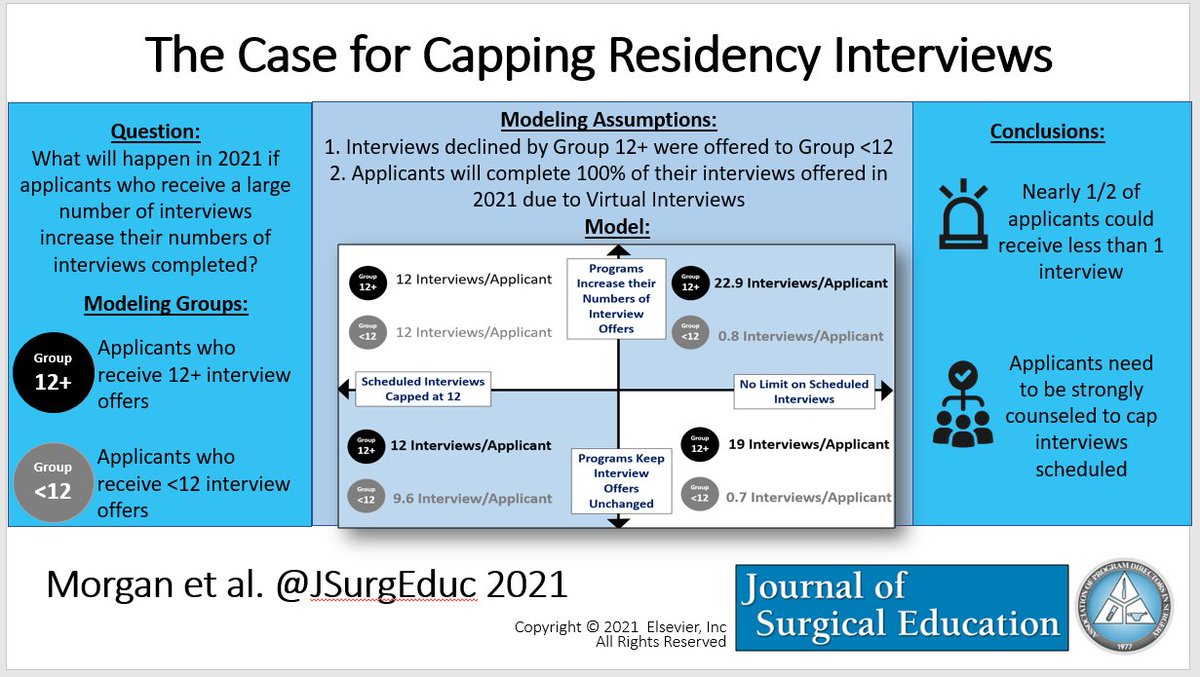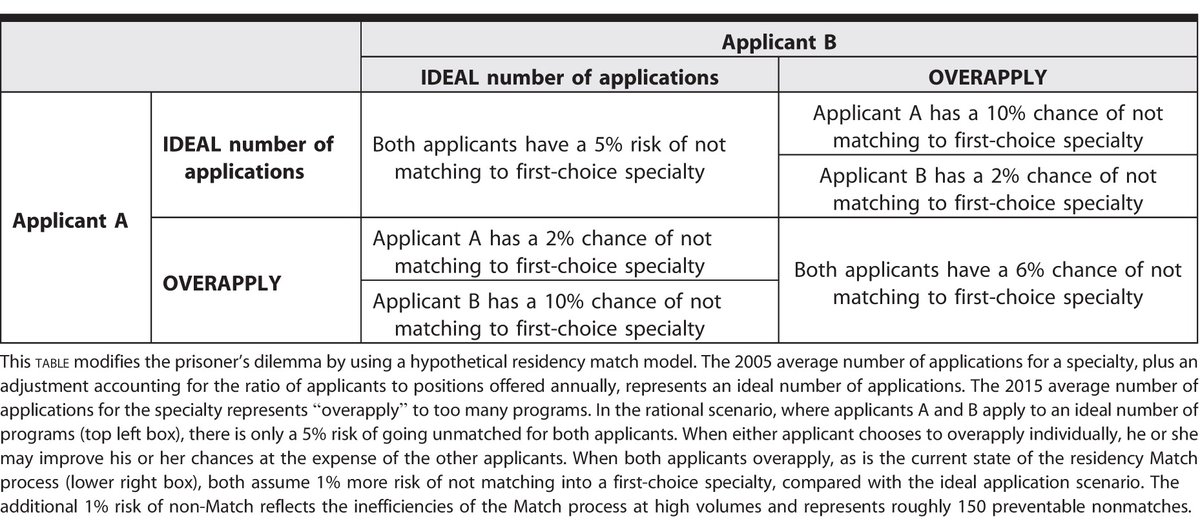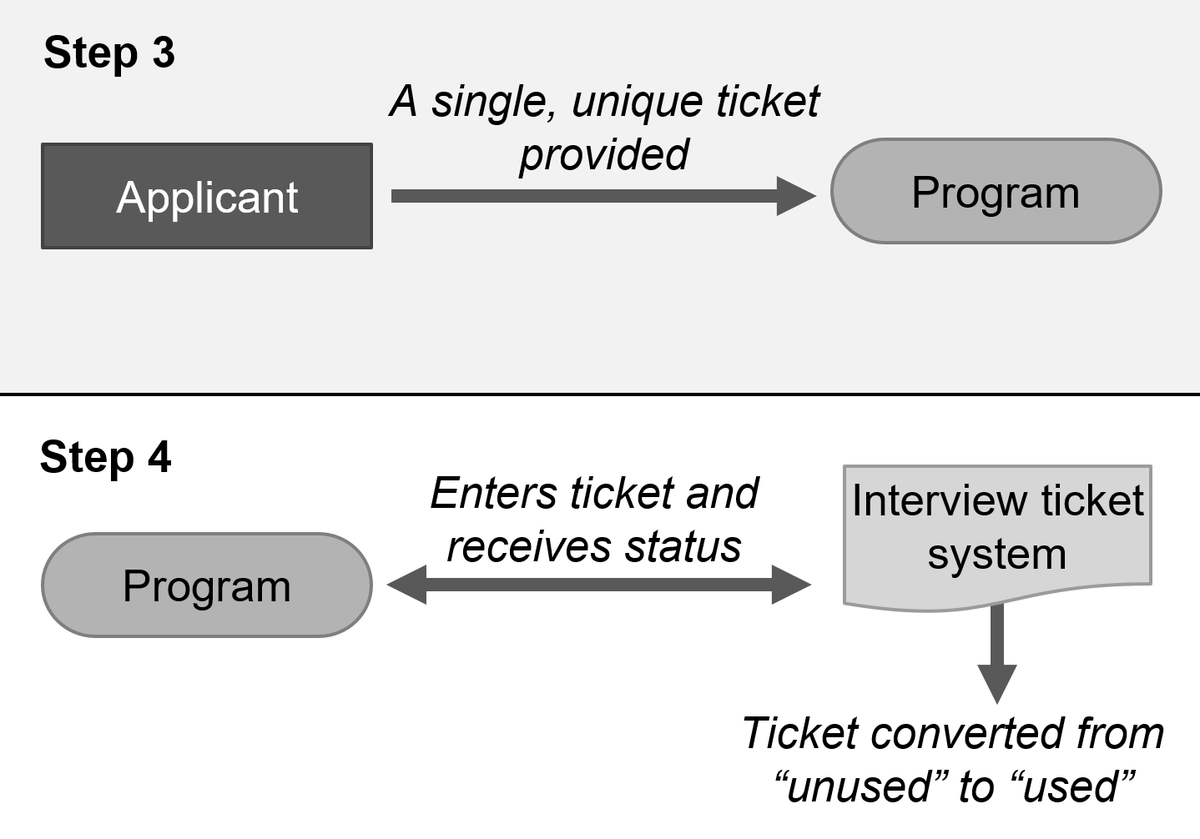1/ We need an interview ticket system for capping interviews, as we describe in this @AcadMedJournal perspective. @T_Standiford @jbcarmody @helenjkmorgan @Maya_Michigan #MedEd
https://journals.lww.com/academicmedicine/Abstract/9000/A_Novel_Ticket_System_for_Capping_Residency.97004.aspx#">https://journals.lww.com/academicm...
https://journals.lww.com/academicmedicine/Abstract/9000/A_Novel_Ticket_System_for_Capping_Residency.97004.aspx#">https://journals.lww.com/academicm...
2/ Pre-COVID, over-interviewing was a problem. An estimated 12% of IM applicants accounted for half of all interviews in 2017. https://onlinelibrary.wiley.com/doi/abs/10.1002/lary.27521">https://onlinelibrary.wiley.com/doi/abs/1...
3/ Besides creating inequity, over-interviewing creates a signal-to-noise problem: if each interviewee is looking at 15 other programs, how does a program know if an interviewee is TRULY interested?
4/ Modeling from @helenjkmorgan suggests widespread virtual interviewing, which removes any barriers to attending interviews, may create further inequity during this cycle. @apgonews @Maya_Michigan
5/ Preliminary reports from the fellowship process suggest interview inflation has indeed worsened in this virtual cycle, though perhaps not with such dire numbers as in Morgan et al.
6/ Limited preference signaling is a no brainer for improving the signal-to-noise ratio, and is being implemented by ENT this cycle with a 5-program signal.
https://opdo-hns.org/mpage/signaling ">https://opdo-hns.org/mpage/sig...
https://opdo-hns.org/mpage/signaling ">https://opdo-hns.org/mpage/sig...
7/ Additionally, we MUST move towards capping interviews. Among US-born grads applying in the 5 largest specialties who allocate 2/3 of all positions, ranking 4–10 programs is associated with a >90% chance of matching. Diminishing returns thereafter. https://www.nrmp.org/main-residency-match-data/">https://www.nrmp.org/main-resi...
8/ Many have called for applicants to self-enforce caps, but game theory dictates such calls are unlikely to be effective. Prisoner& #39;s dilemma y& #39;all. https://www.jgme.org/doi/full/10.4300/JGME-D-16-00239.1?=">https://www.jgme.org/doi/full/...
9/ Ophthalmology is trying a 20-program cap (very conservative) using a centralized scheduling system through SF Match. But centralized scheduling unlikely to be tenable for larger specialties. https://www.aaojournal.org/article/S0161-6420(20)30641-2/fulltext">https://www.aaojournal.org/article/S...
10/ Enter the Interview Ticket System (ITS). Participating specialties select an evidence-based cap. Applicants receive this number of unique electronic tickets.
11/ The system requires no changes to interview offer and scheduling platforms, which can occur using existing infrastructure outside the ITS.
12/ At the time of interview, an applicant gives a ticket to the program, who marks it as used within the ITS interface. The system would be self-enforcing!
fin/ Final perk: the ITS could ALSO be used for limited preference signaling! So who wants to build this thing? @AmerMedicalAssn @AAMCtoday @TheNRMP @AAIMOnline

 Read on Twitter
Read on Twitter







